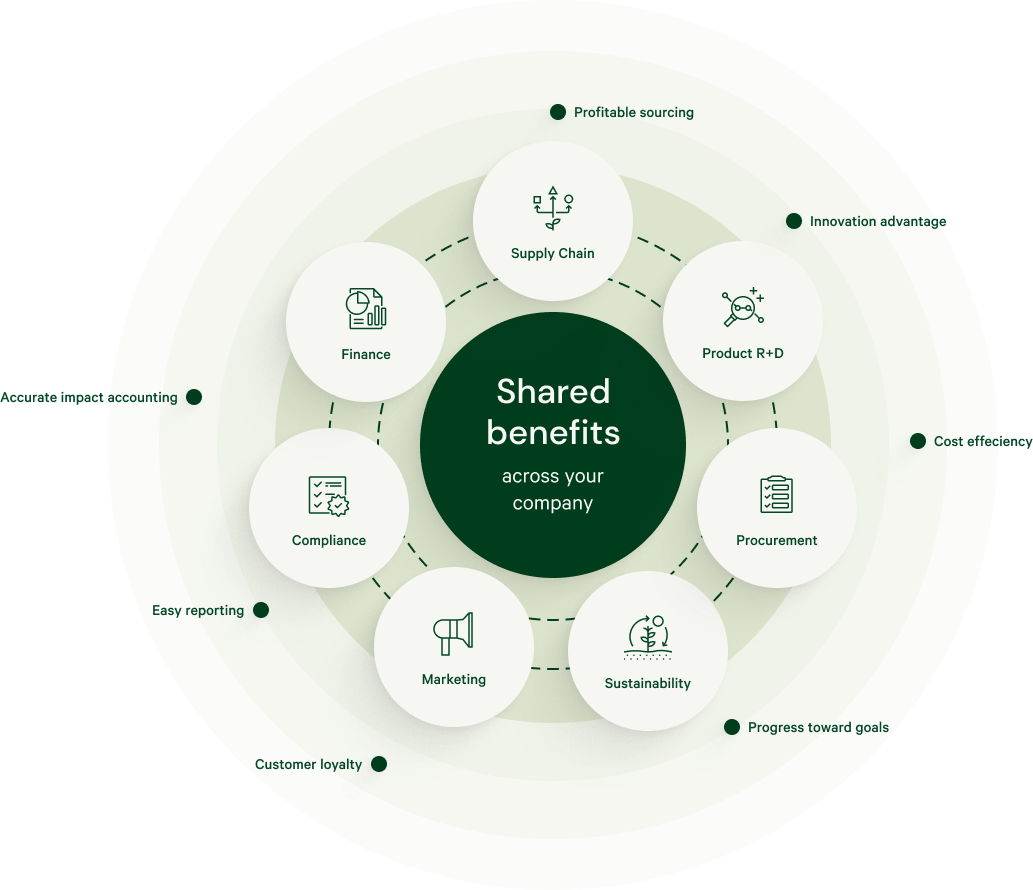Climate change is wreaking havoc on our food systems, damaging farmers' fields and destabilizing global supply. As a result, food security and the performance of businesses that rely on agriculture are both increasingly at risk. Minimizing this risk will require a united effort to future-proof our agricultural supply chains.
What does it mean to assure supply chains?
We must enhance the resilience of our food systems. This isn't a new problem, but it's now abundantly clear that industry efforts up to this point haven’t scaled quickly enough to mitigate upcoming risks. For companies entrenched in agriculture, resilience isn’t just beneficial; it’s essential for long-term success.
This issue extends beyond the realm of sustainability experts—it's a pressing concern for business leaders tasked with ensuring the future of their businesses. It’s time for Agriculture Resilience to find itself at the top of corporate agendas, with CEOs leading the charge to enhance resilience across their organizations.
Corporate action hasn’t risen to the challenge.
The effects of climate change on agriculture are profound. The World Economic Forum notes that extreme weather is pushing food prices higher, affecting staples like rice, soybeans, and potatoes. A NASA study predicts a potential 24% decline in corn yields over the next decade. Most greenhouse gas emissions come from corporations, and in the food sector, over 90% are scope 3 emissions originating from suppliers, including those from farming.
Despite these clear issues, corporate action is lacking. According to the Science Based Targets Initiative, only a small fraction of food and agriculture companies have set specific targets to reduce these emissions. This lack of initiative was a topic of concern at major global forums like COP28 and Davos.

A framework for action: what exec leaders can do.
Here’s a straightforward, three-step approach for business leaders committed to sustainable business practices:
- Measure and Understand Emissions: Identify current emissions levels and the gaps in achieving set goals.
- Manage the Impact Gap: We need to define and address the Impact Gap, a concept critical in aligning company actions with climate objectives.
- Mobilize Stakeholders: Encourage key stakeholders within the company to prioritize and take action on these issues.
It’s possible to alter both your company’s trajectory and that of the broader agricultural industry by adopting a holistic approach to transforming supply chains and reducing emissions. Leaders who proactively engage with these challenges will not only gain a competitive edge; they will also play a crucial role in fostering a climate-resilient global economy.
This strategic involvement is no longer optional. It's imperative for the survival and success of businesses and the planet alike.

Interested in diving deeper into this framework? Curious about the Impact Gap and how it can help your business?
Read our white paper, Assuring the Food Supply Chain: A business leader’s guide to reducing emissions, mitigating climate risk, and ensuring business longevity.



